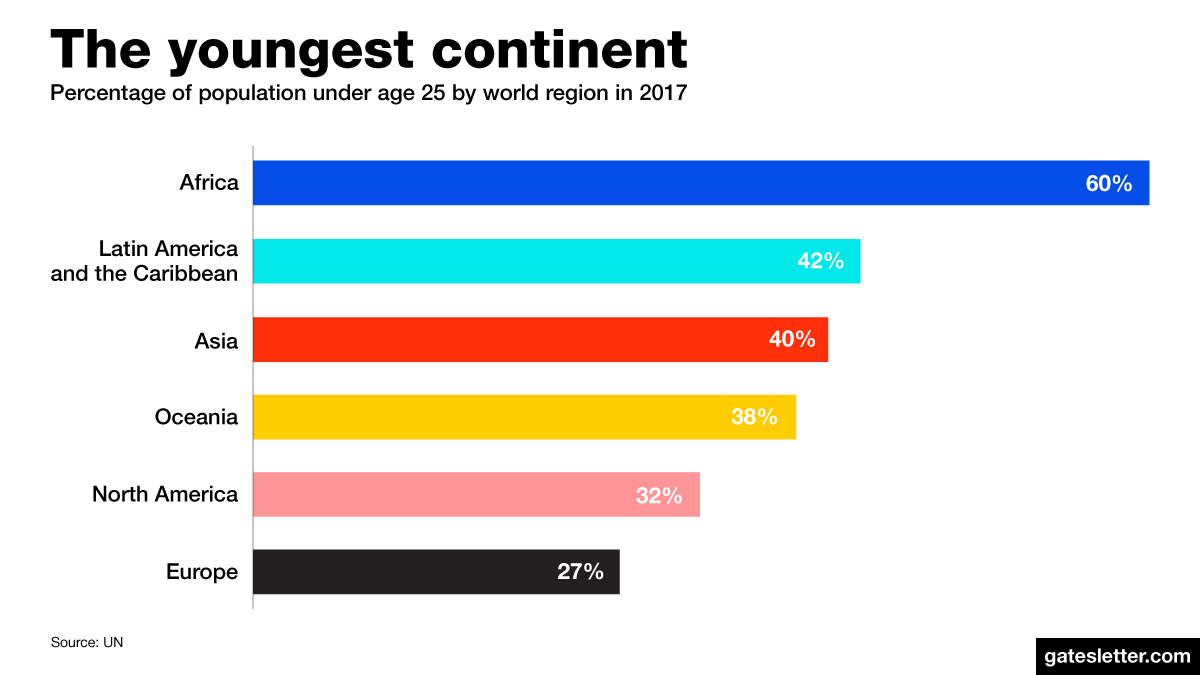9 surprising facts that moved us to action
- By Bill and Melinda Gates
 0 Comment(s)
0 Comment(s) Print
Print E-mail China.org.cn, February 13, 2019
E-mail China.org.cn, February 13, 2019

How would you describe 2018?
Was it what you expected?
Melinda and I would probably say no. From especially devastating natural disasters on the one hand to record numbers of women campaigning for office on the other, 2018 felt to us like a series of surprises. The world looking backward from today is very different from what we pictured a couple years ago looking forward.
A benefit of surprises is that they're often a prod to action. It can gnaw at people to realize that the realities of the world don't match their expectations for it. Some surprises help people see that the status quo needs to change. Some surprises underscore that transformation is happening already.
Twenty-five years ago, we read an article that said hundreds of thousands of kids in poor countries were dying from diarrhea. That surprise helped crystallize our values. Melinda and I believe in a world where innovation is for everyone — where no child dies from a disease it's possible to prevent. But what we saw was a world still shaped by inequity.
That discovery was one of the most important steps in our journey to philanthropy. We were surprised, then we were outraged, then we were activated.
There have been good surprises, too. When we first started learning about malaria, we thought the world would never make real headway on the disease until someone invented a long-acting vaccine. But thanks to bed nets and other measures, malaria deaths are down 42 percent since 2000.
In this year's annual letter, we're highlighting nine more things that have surprised us along this journey. Some worry us. Others inspire us. All of them are prodding us to action. Melinda and I hope they do the same for you, because that's how the world gets better.
1. Africa is the youngest continent. While the rest of the world keeps getting older, the median age of Africa—and especially sub-Saharan Africa — stays young. This can be either an asset or a source of instability, depending on these young people's access to high-quality health and education services.

2. At-home DNA tests can help prevent premature birth. By looking at genetic samples voluntarily submitted by 23andMe users, scientists discovered a potential link between preterm labor and a gene that regulates how the body uses a mineral called selenium. Insights like this will help doctors extend more pregnancies to full term.
3. The world will build an entire New York City every month for 40 years. The world's building stock is expected to double by 2060. Manufacturing the cement and steel needed for all that construction will emit a lot of greenhouse gases. To solve climate change, we need to get to near-zero emissions on all the things that drive it, including making building materials.
4. Data can be sexist. There are huge gaps in the global data about women and girls. For example, we don't know how much income women in developing countries earned last year or how much property they own or how many more hours girls spend on household chores than boys do. Better data will help policymakers take action to improve women's and girls' lives.
5. There's a nationalist case for globalism. Nationalism is a loaded word. At its core, it's the belief that a country's first obligation is to itself. But even if a person believes countries should only act in their own self-interest, that doesn't erase the need to engage with the broader world. Investing in the world's poorest people makes all of us healthier and more secure.
6. You can learn about processing your anger from teenage boys. One of the most surprising experiences for me personally last year was participating in a discussion group with a bunch of teenage boys at a high school in Chicago. It was inspiring to see these young men working on dealing with their anger much earlier than I did. I was touched by the respect they had for each other and the intimacy they allowed themselves.
7. Toilets haven't changed in a century. Flush toilets (which became prevalent in the 19th century) haven't had an overhaul in a while. And while they're still working just fine for rich countries, they aren't an adequate solution for places that can't afford or support sewer systems — which means more than 2 billion people don't have access to a decent toilet. As a result, their waste often ends up in the environment untreated. A reinvented toilet that doesn't require a sewer would save millions of lives.
8. Textbooks are becoming obsolete. U.S. classrooms are starting to replace traditional (heavy and expensive) textbooks with digital learning tools. These online tools are facilitating a new approach to student learning that is particularly beneficial to today's college students, who are increasingly likely to be balancing school with earning an income and even raising a family.
9. Mobile phones are most powerful in the hands of the world's poorest women. For the world's most marginalized women, a mobile phone does more than make their old life more convenient — it can help them build an entirely new life. Women are not only using their mobile phones to access services and opportunities; they're using them to change social norms and challenge the power structures that perpetuate gender inequality.

Melinda and I know first hand that a surprise can be a powerful call to action — just as the article about children dying from diarrhea was for us. We've shared nine things that have surprised us over the years, and we're ready for more. Tell us about something that has surprised you and moved you to take action. We'll highlight the best responses in the near future.
Opinion articles reflect the views of their authors, not necessarily those of China.org.cn.






Go to Forum >>0 Comment(s)